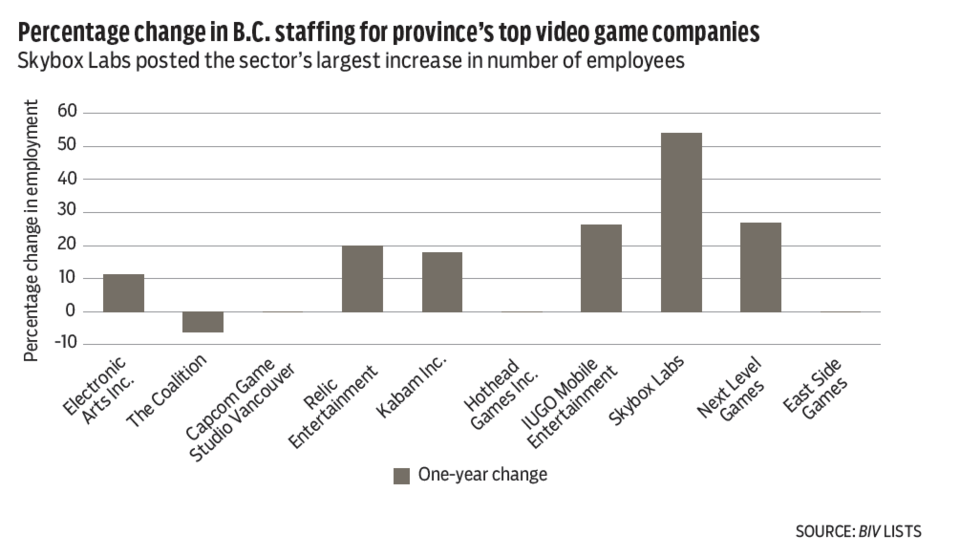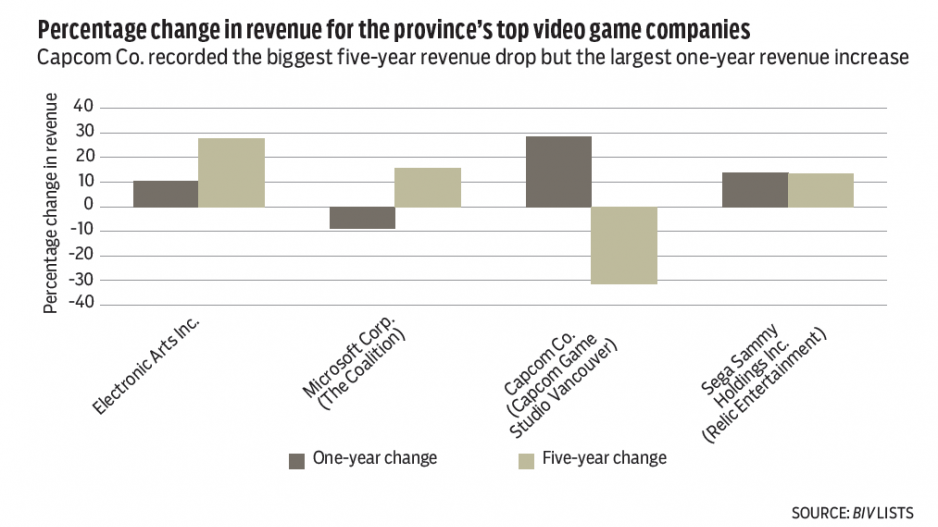Revenue and employment numbers for British Columbia’s video game industry reveal healthy jumps, steep drops and sharp comebacks among the top players and steady job gains among smaller companies.
The province’s biggest video game developer, Electronic Arts Inc. (Nasdaq:EA), increased its revenue by more than
US$1 billion (27.6%) over a five-year period, to US$4.85 billion in 2016 from US$3.8 billion in 2012.
Over the past year, Electronic Arts increased staff by 11.1% to 1,500 employees in 2017 from 1,350 in 2016.
International industry giant Capcom Co., the Japanese video game developer with a creative studio in Vancouver, recorded the largest five-year revenue decrease of the top four largest public video game companies.
However, Capcom also had the greatest one-year revenue increase.
In 2016, Capcom’s revenue increased 28.4% or US$152 million to $687.7 million from US$535.6 million in 2015.
The sharp one-year increase is likely welcome news for the company, whose revenue had dropped by almost half between 2014 and 2015 – a decline it attributed to a lack of new releases that year.
Capcom’s revenue dropped by 31.3% between 2012 and 2016, falling $313.1 million from $1 billion.
Revenue numbers for Microsoft Corp.’s (Nasdaq:MSFT) subsidiary The Coalition were not available, though Microsoft reported a revenue drop of US$8.2 billion or 8.8% to US$85.3 billion in 2016 from US$93.6 billion in 2015.
Smaller B.C. video game developers enjoyed provincial employment increases in the past year.
While employment at the top five companies on Business in Vancouver’s Biggest Video Game Developers in B.C. list increased by an average of 8.5% in 2017 from 2016, those ranked sixth through 10th grew by an average of 21.4% over the same period.

Skybox Labs, the developer that’s in part responsible for the Halo franchise, one of the largest-grossing Xbox franchises, had the largest increase in B.C. employment, growing 53.9% to 100 employees in 2017 from 65 employees in 2016.
The Coalition was the only company with an employment drop in B.C. over the past year, falling 6.3% to 300 employees from 320 employees in 2016. •




